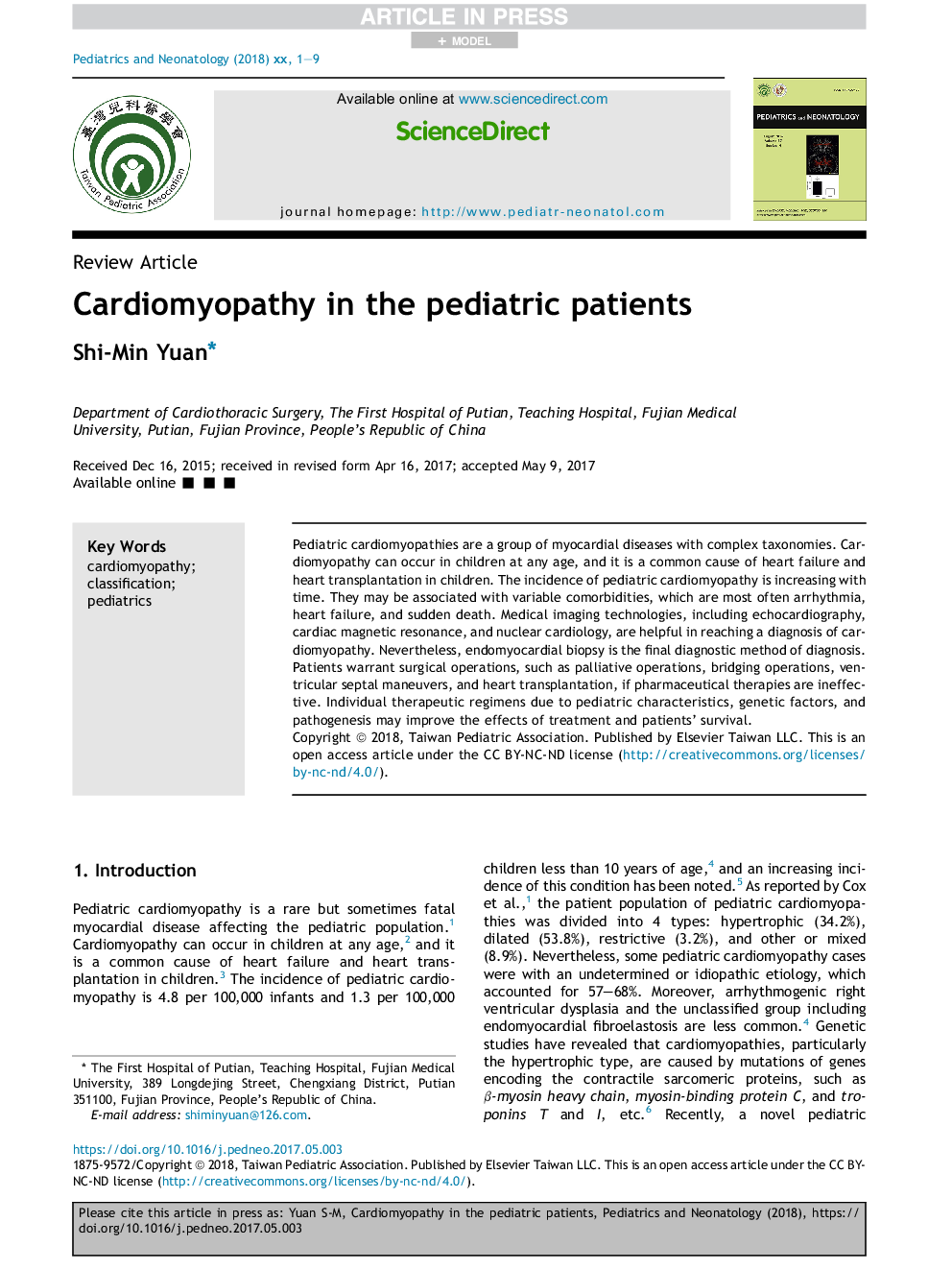| Article ID | Journal | Published Year | Pages | File Type |
|---|---|---|---|---|
| 8813318 | Pediatrics & Neonatology | 2018 | 9 Pages |
Abstract
Pediatric cardiomyopathies are a group of myocardial diseases with complex taxonomies. Cardiomyopathy can occur in children at any age, and it is a common cause of heart failure and heart transplantation in children. The incidence of pediatric cardiomyopathy is increasing with time. They may be associated with variable comorbidities, which are most often arrhythmia, heart failure, and sudden death. Medical imaging technologies, including echocardiography, cardiac magnetic resonance, and nuclear cardiology, are helpful in reaching a diagnosis of cardiomyopathy. Nevertheless, endomyocardial biopsy is the final diagnostic method of diagnosis. Patients warrant surgical operations, such as palliative operations, bridging operations, ventricular septal maneuvers, and heart transplantation, if pharmaceutical therapies are ineffective. Individual therapeutic regimens due to pediatric characteristics, genetic factors, and pathogenesis may improve the effects of treatment and patients' survival.
Related Topics
Health Sciences
Medicine and Dentistry
Perinatology, Pediatrics and Child Health
Authors
Shi-Min Yuan,
